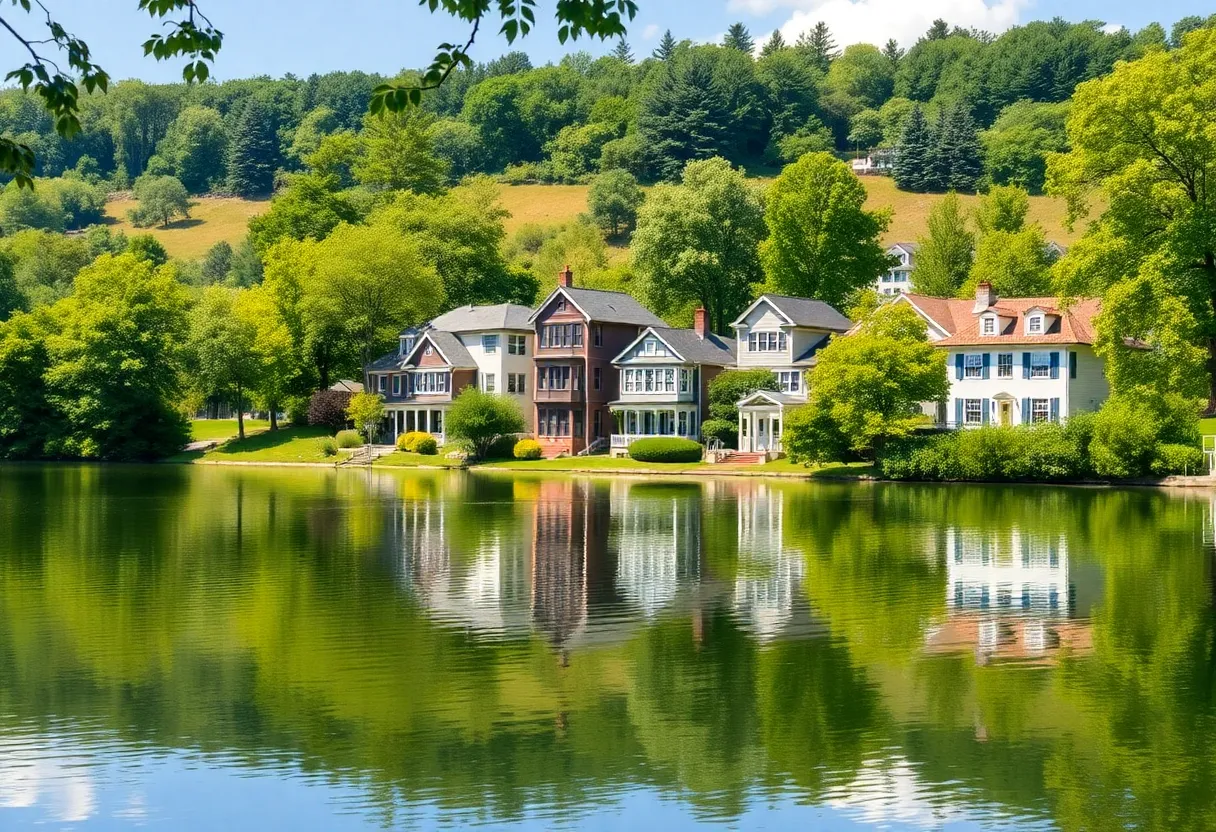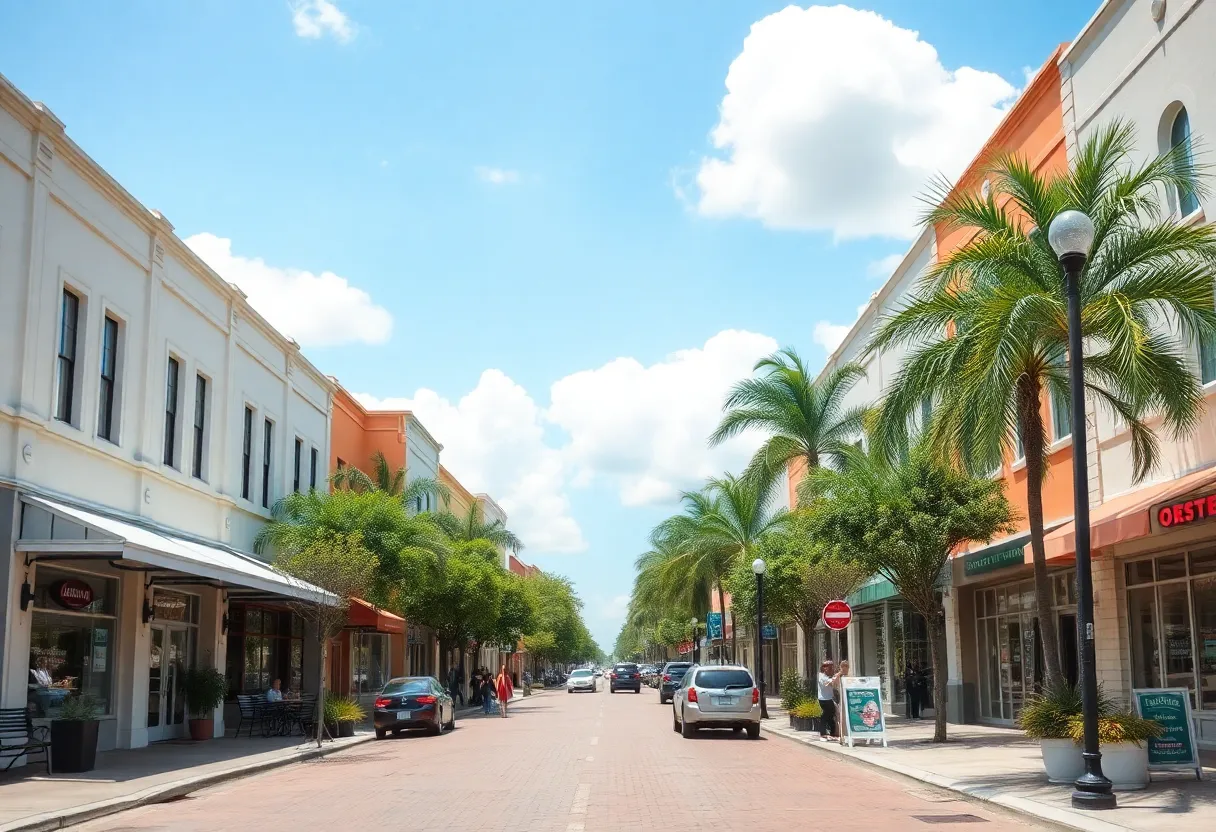News Summary
The St. Petersburg City Council voted 5-2 to officially designate Mirror Lake as a historic district, receiving overwhelming support from local residents. Approximately 89% of the community endorsed the decision, keen on preserving the area’s iconic architecture amidst fears of future development. New regulations will require a Certificate of Appropriateness for renovations and new constructions, stirring mixed opinions among property owners. This designation serves to maintain the neighborhood’s character while balancing development needs amidst the city’s housing crisis.
St. Petersburg City Council Declares Historic District Status for Mirror Lake
In a lively gathering this past December, the St. Petersburg City Council made headlines by approving a 5-2 vote to officially designate Mirror Lake as a historic district. This decision comes at a time when the community is expressing mixed feelings about future development opportunities versus the need to preserve the beautiful essence of the area.
Community Support Shines Bright
One of the shining stars of this decision is the overwhelming support from local residents. Approximately 89% of the Mirror Lake community has rallied behind the historic designation. It seems that many residents cherish their neighborhood’s architectural charm, which includes iconic buildings like the Cade Allen homes, the St. Petersburg Shuffleboard Club, the Chess Club, the Coliseum, and even a historic Carnegie library.
As development continues to surge outside the historic boundaries, this designation serves as a protective barrier, allowing locals to maintain their neighborhood’s distinctive character. While this is a win for many, some critics are feeling uneasy, voicing concerns over how this change may impact necessary developments, especially in light of the existing housing crisis.
New Regulations on the Horizon
Under the new guidelines, residents planning any renovations, demolitions, or new constructions within the historic district will now be required to obtain a Certificate of Appropriateness (COA). This becomes an additional step in the redevelopment process, and some property owners fear that increased oversight could serve as a setback for their plans.
However, representatives of the preservation movement argue that most COA applications are approved at the staff level, which minimizes public hearings. Supporters assert that embracing historic districts can contribute positively to local tourism and encourage small business growth. Moreover, they suggest that using existing homes could be a better solution to tackling the housing demands than greenlighting new large-scale developments.
Historic District Comparisons and Future Outlook
Interestingly, despite the strong feelings surrounding the Mirror Lake designation, a study revealed that only about 0.5% of St. Petersburg’s total land area is currently within a historic district boundary. This statistic pales in comparison to other major cities like Miami, Nashville, and New York City, where historic districts occupy a larger share of land. The recent decision to protect Mirror Lake may pave the way for other areas in St. Petersburg to seek similar historic recognition in the future.
Consensus or Controversy?
The designation covers roughly 142 parcels in the Mirror Lake neighborhood, with over half of the residents needing to show their support for this application. In an encouraging sign, 77 out of 91 ballots reflected approval for the historic status. However, some opponents have raised eyebrows regarding the voting process, suggesting it favored certain residential buildings over others within the proposed district.
Adding to the tension, critics also express fears that this designation could enforce stricter regulations that might hinder thoughtful development essential for the city’s ongoing growth. While those concerns resonate, it is crucial to note that the new regulations will not affect existing developments that have already received prior approval.
Looking Ahead
The decision follows a comprehensive two-year review conducted by the Community Planning and Preservation Commission (CPPC) and comes after a diligent public comment period. As the city prepares for the upcoming second reading and public hearing scheduled for December 12, 2024, residents remain vigilant and engaged about what this means for their beloved neighborhood.
In a city grappling with development demands, the designation of Mirror Lake as a historic district represents both a heartfelt nod to the past and a balancing act as St. Petersburg navigates its evolving landscape. Only time will tell how this historic designation shapes the future of the Mirror Lake community.
Deeper Dive: News & Info About This Topic
HERE Resources
New SunRunner Station Opens in Downtown St. Petersburg
Cold Night Shelters Open to Help Those in Need
St. Petersburg’s Housing Market Remains Strong Despite Rising Costs
St. Petersburg City Council Welcomes New Members
St. Petersburg Establishes Local Historic District Around Mirror Lake
Rob Bowen Launches Luxury Interior Design Studio in St. Petersburg
Red Apple Real Estate Expands Presence with $13 Million Purchase of Downtown St. Petersburg Site
St. Petersburg City Council Establishes Historic District Around Mirror Lake to Preserve Architectural Heritage
Historic Designation for St. Petersburg’s Mirror Lake Neighborhood Approved by City Council
St. Petersburg High School: Celebrating 98 Years as a Historical Landmark and Community Cornerstone
Additional Resources
- I Love The Burg: Mirror Lake Historic District
- St. Pete Rising: Mirror Lake Historic District
- Fox 13 News: Mirror Lake Local Historic District
- St. Pete Catalyst: Historic Preservation Win
- WTSP: Mirror Lake Historic District Update







